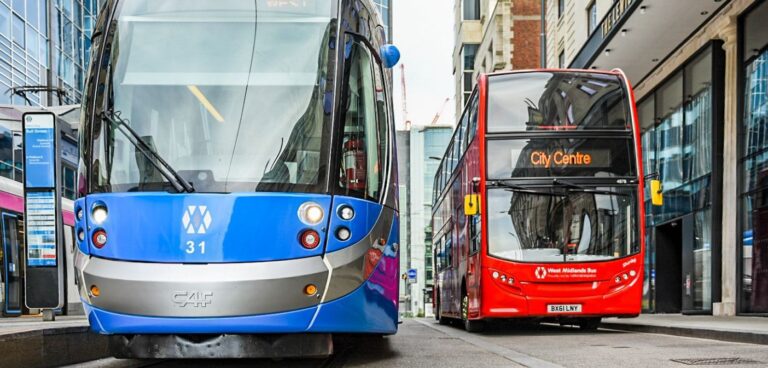Transport for West Midlands (TfWM) is working with the UK’s principal bus operators to launch a major fare capping project to offer passengers better value and greater convenience when using their credit or debit card on public transport.
Over the next two years, a system will be developed to allow passengers to use their contactless cards across a range of transport modes and operators, which will mean ‘best value’ fares are applied automatically.
According to TfWM, this will effectively enable any debit or credit card for multi-operator travel offering people the ability to tap on and off buses in the region.
The scheme is one of a number of innovations being delivered over the next two years after TfWM, which is part of West Midlands Combined Authority (WMCA), secured £18m in funding from the City Region Sustainable Transport Settlement.
For passengers excluded from the banking system or unwilling to use their contactless card for travel, TfWM’s Swift card will continue to be available for use, with flexible fares capped over one, three and seven days on offer.
After Oyster, Swift is reportedly the most popular smartcard scheme for travel payments in the UK with approximately 250,000 regular users making more than 60 million journeys per year.
The £18m funding will also cover the costs of 60 new Swift card vending machines, which will be installed at key locations across the West Midlands from early next year.
Bus fares in the West Midlands are said to be among the lowest in the country – including multi-operator daysaver, which, at £4.20, is the same price it was in 2013.
TfWM is working with operators and the UK government through the region’s Bus Service Improvement Plan to further improve value for passengers.
Cllr Ian Ward, WMCA portfolio holder for transport and leader of Birmingham City Council, said: “Swift is a national leader in smart ticketing and this investment will take it to the next level for passengers – offering everyone the lowest fare guaranteed on public transport with just a tap of their bank card.
“Offering better value and convenience is a key part of our plans to encourage more people to leave their cars at home and use public transport as we tackle the climate emergency, reduce traffic congestion, and improve the air we breathe.
“This is just part of the more than £1bn investment we are putting in our transport over the next five years to revolutionise our bus, cycling, rail and tram networks and services better connecting people to the job and leisure opportunities across the region.”
According to TfWM, the multi-operator contactless fare capping project could also be rolled out further afield through partnerships with Midlands Connect, meaning the scheme could cover a wider region and nationally with government and other transport operators’ support.
The so-called ‘tap-and-cap’ scheme could help commuters in the West Midlands go further afield for work and leisure and go from bus to tram to train throughout the region for a daily cap.





